20 Times PETA Smashed Experiments and Saved Animals in 2020
To say the absolute least, 2020 was not the year anyone had hoped for. But amid the devastation, something phenomenal happened: PETA accomplished monumental victories that will spare millions of animals torture and certain death in laboratories around the world.
From calling out universities for killing “non-essential” imprisoned animals during the pandemic … to exposing experimenter Elisabeth Murray for inflicting permanent, debilitating brain damage on rhesus macaques … to the work of PETA scientists to prevent a species that’s half a billion years old from going extinct, we’ve been busier than ever in our mission to liberate all animals from laboratory tests.
We’ve taken 20 of our favorite victories from 2020 and recapped them below. Even though this end to the decade has been a dumpster fire in many ways, we hope readers find some solace knowing that countless animals are no longer killed in these horrific experiments.
Suave Worked With PETA to Ban Animal Tests for Its Products Around the World
PETA’s Beauty Without Bunnies program welcomed one of the biggest personal-care brands in the world in 2020: Unilever’s Suave. Over the course of more than a year, the brand worked with PETA scientists to ban all tests on animals worldwide, including in China.
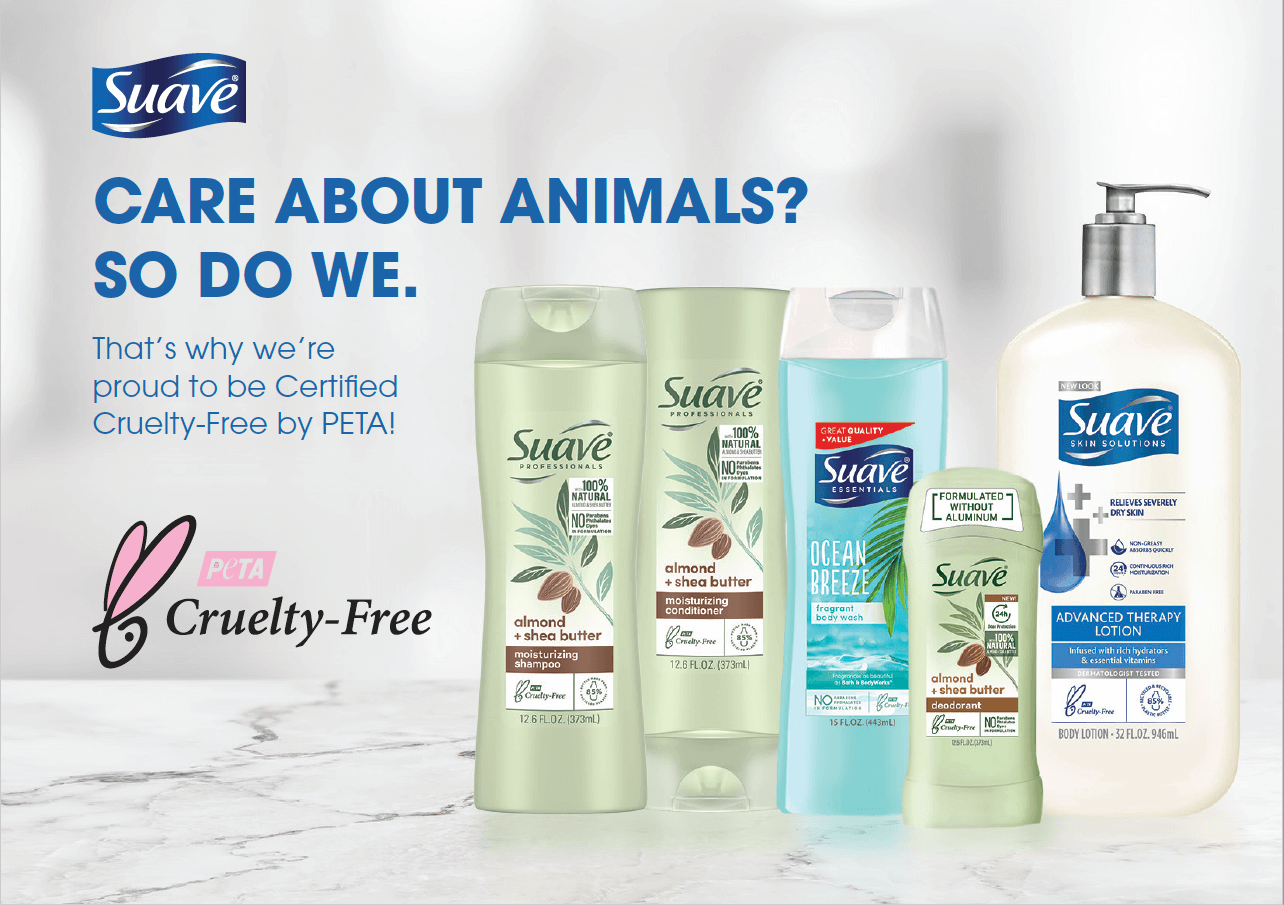
China and some other countries still require most companies to pay for tests in which substances are applied to animals’ sensitive eyes, smeared onto their skin, sprayed in their faces, or forced down their throats. Recent changes to Chinese regulations—the result of work by PETA, the Institute for In Vitro Sciences, and some cosmetics companies—have made it possible for brands to sell some products there without harming animals.
PETA Helped Bolivian Engineers Develop Ventilators for COVID-19 Patients—Without Animal Testing
With hospitals overrun with COVID-19 patients desperate for treatment, there was no time to waste on animal trials in developing lifesaving ventilators.
Thanks to guidance from PETA and Amor por los Animales Bolivia, engineers at the Catholic University of Bolivia in La Paz successfully developed a ventilator to treat COVID-19 patients without harming animals. The machine was tested on a human simulator containing an artificial lung that PETA scientists had recommended to the engineers. This spared intelligent, social pigs—the usual test subjects for these machines—the distress and harm of artificial ventilation. The team began clinical trials and successfully tested the ventilator’s function and safety in human patients.
PETA Got the World’s Largest Fruit and Vegetable Producer to Stop Funding Animal Tests
After hearing from PETA, the Dole Food Company persuaded the Mayo Clinic to divert funds that the company donates to that institution away from deadly experiments on animals and toward superior, human-relevant, animal-free nutrition research.
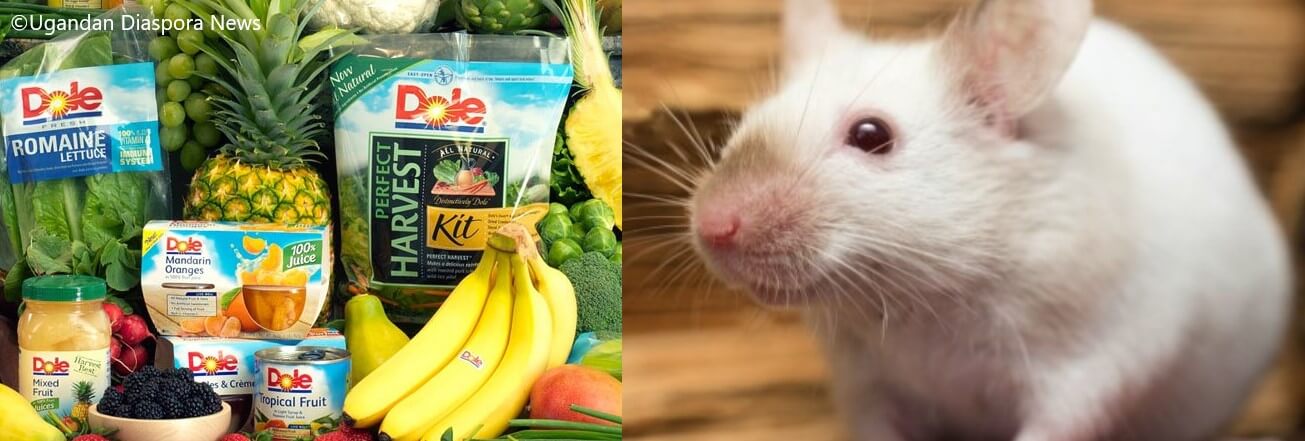
Mice are quick learners and caring parents and even sing to their mates. They’re wonderfully complex and interesting. Despite their complex lives, the experimenter who held the David Murdock/Dole Food Company Chair of Nutrition at the Mayo Clinic had engaged in numerous crude experiments on mice, including force-feeding mice to induce obesity, electrocuting them, and bleeding them to death.
PETA’s Film Test Subjects Won an Award and Appeared at Multiple Film Festivals
Directed by BAFTA award–winning director Alex Lockwood, Test Subjects follows a trio of former doctoral students as they recall the pressures they experienced in academia to perform cruel experiments on animals.
Test Subjects premiered at Raindance, the U.K.’s largest film festival, where the unprecedented film exposed an irrational status quo built on grooming grad students to harm animals. Since then, the film has been featured at numerous festivals and racked up several award nominations. It also won the Grand Jury Award for Short Documentary at the Awareness Film Festival in Los Angeles.
A Scientific Breakthrough Funded by the PETA International Science Consortium Ltd. Will Prevent Horses From Being Injected With Toxins and Having Their Blood Drained
A project funded by the PETA International Science Consortium Ltd. succeeded in creating fully human-derived antibodies capable of blocking the poisonous toxin that causes diphtheria.
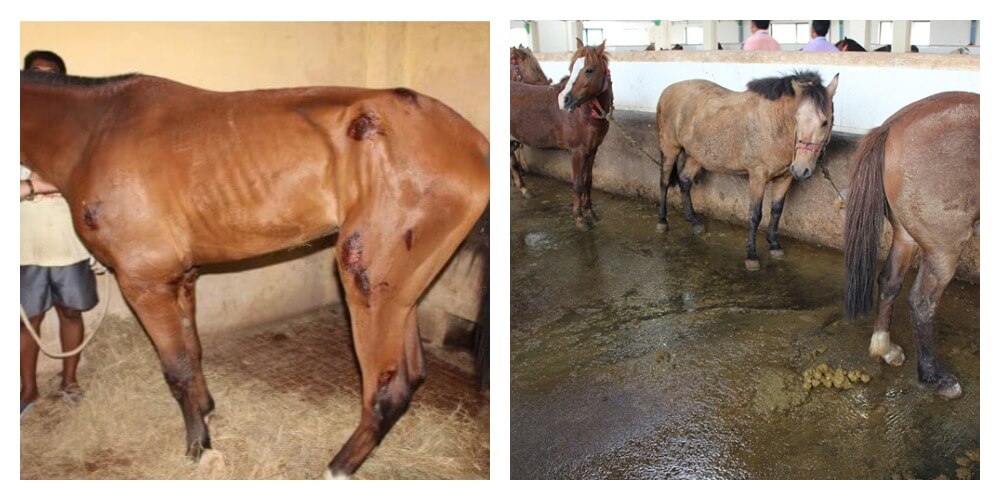
These human-derived antibodies are the first steps toward ending the 100-year-old method of injecting horses repeatedly with the diphtheria toxin and then draining huge amounts of their blood in order to collect the antibodies that their immune systems produce to fight the disease.
Horses can learn symbols and use them to communicate desires, and they’re visibly excited by their newfound skills. Knowing that they can feel joy, pain, fear, and all the other emotions that we do, we can only imagine the agony these horses endure.
Taiwan Stopped Requiring Drowning and Electrocution of Animals to Market Health Food, Thanks to PETA
Following pressure from PETA, the Taiwan Food and Drug Administration (TFDA) announced a groundbreaking decision to delete all animal tests—including drowning mice and rats and making them run to exhaustion on an electrified treadmill—from a draft regulation for establishing dubious anti-fatigue health claims for marketing foods and beverages. At the TFDA’s request, PETA had submitted a detailed scientific critique of these crude and archaic experiments, which are irrelevant to human health.
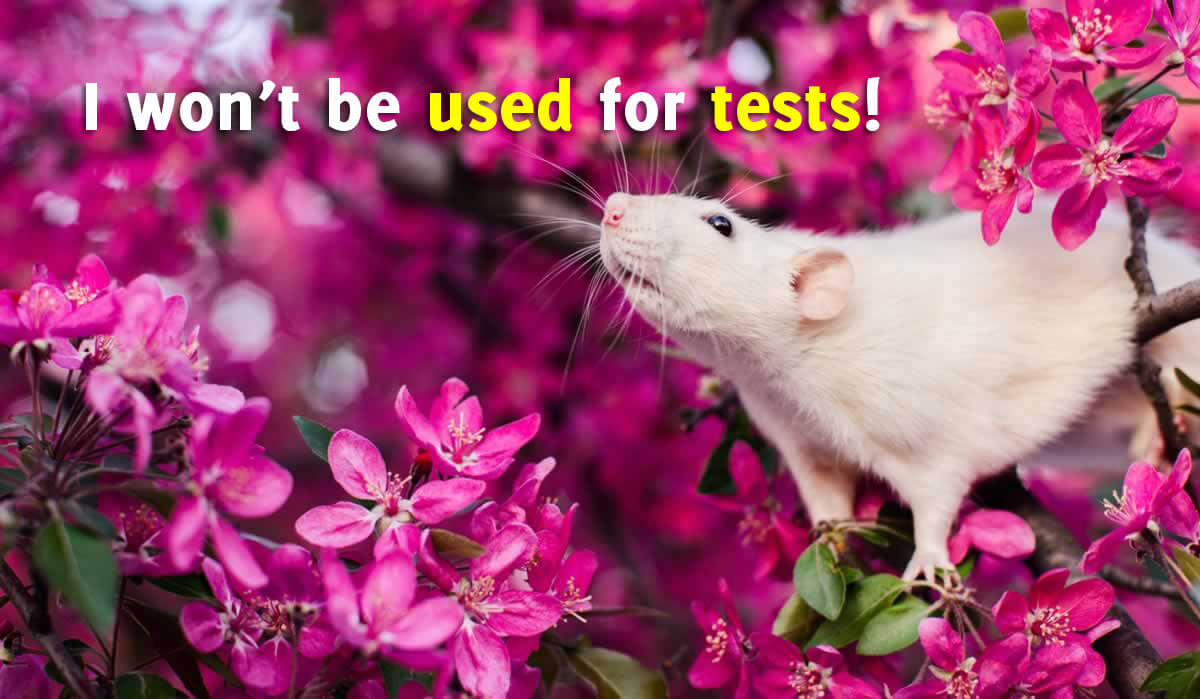
Also after facing pressure from PETA, the agency made another landmark decision: to accept and prioritize internationally recognized animal-free testing methods for ensuring food safety. This huge victory will prevent countless animals from enduring cruel and deadly experiments. PETA had submitted a formal scientific comment at the TFDA’s request, calling for the agency to accept and prioritize modern, animal-free test methods for confirming food safety.
We Turned Chocolatier Barry Callebaut Sweet by Pushing It to Ban Animal Tests
After discussions with PETA and PETA Germany, Switzerland-based chocolatier Barry Callebaut—the “world’s leading manufacturer of high-quality chocolate & cocoa products”— publicly announced that it will not conduct, fund, or commission any animal experiments unless they are explicitly required by law.

The multibillion-dollar company also announced plans to open a completely vegan production facility in the German state of Schleswig-Holstein.
Secret Deodorant Joined PETA’s Cruelty-Free List
In 2020, iconic Secret deodorant joined PETA’s Global Beauty Without Bunnies program as the latest Procter & Gamble brand to ban tests on animals. Look for PETA’s bunny logo on its website and packaging.
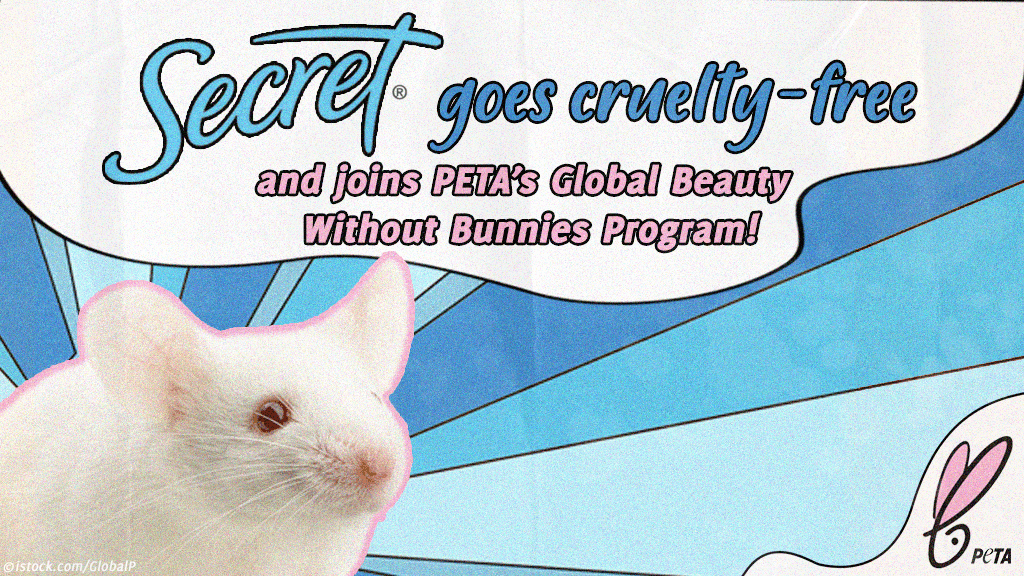
Red Bull–Backed Charity Lost Major Funders After PETA Exposed Animal-Mutilating Tests
Electrocuting a monkey, paralyzing mice, and crushing pigs in failed attempts to study human spinal cord injuries make about as much sense as drinking a Red Bull to help you sleep. PETA called out the charity Wings for Life, urging it to end its support of these experiments and instead fund more advanced studies that might actually help humans. As a result, Ball Corporation dropped its entire support of the charity and the Austrian Federal Ministry of the Interior stated that it would reassess future donations.
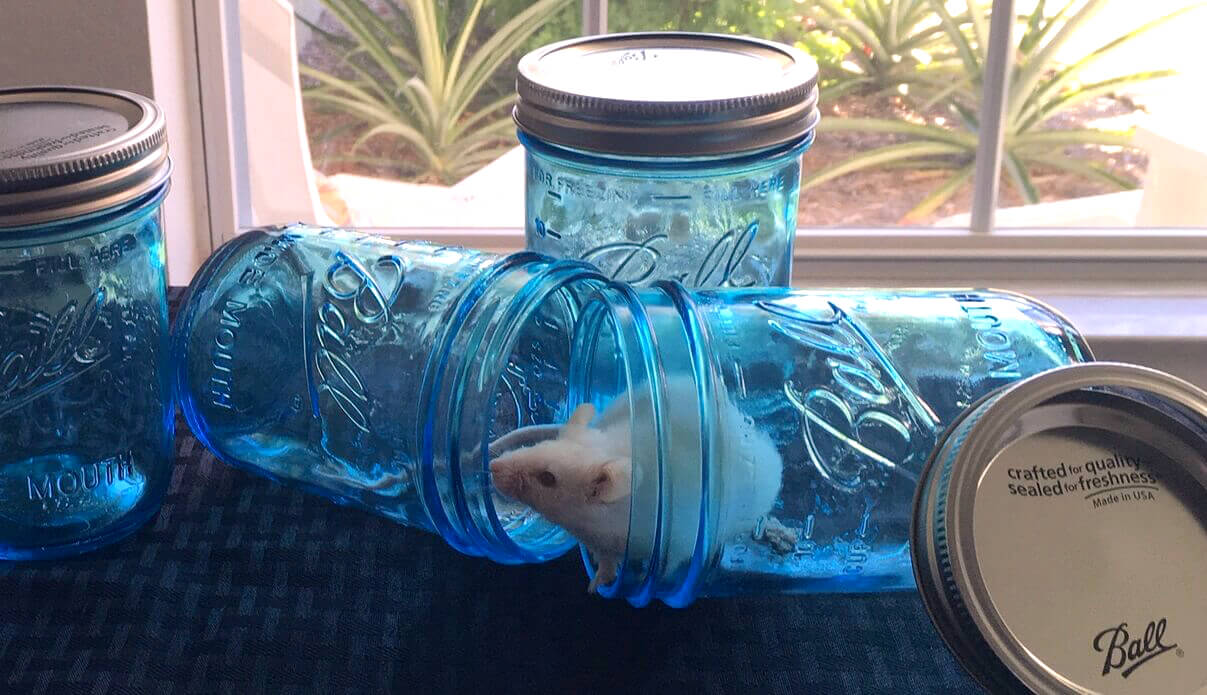
Published papers from the last two years alone show that experimenters who received funding from Wings for Life had injured and killed more than 4,700 animals in tests not required by law.
We Pushed Pharma Giant GlaxoSmithKline to Ban the Near-Drowning Test
Between 2002 and 2018, GlaxoSmithKline published at least 29 papers that describe the use of the forced swim test in experiments involving at least 1,327 mice and 447 rats.
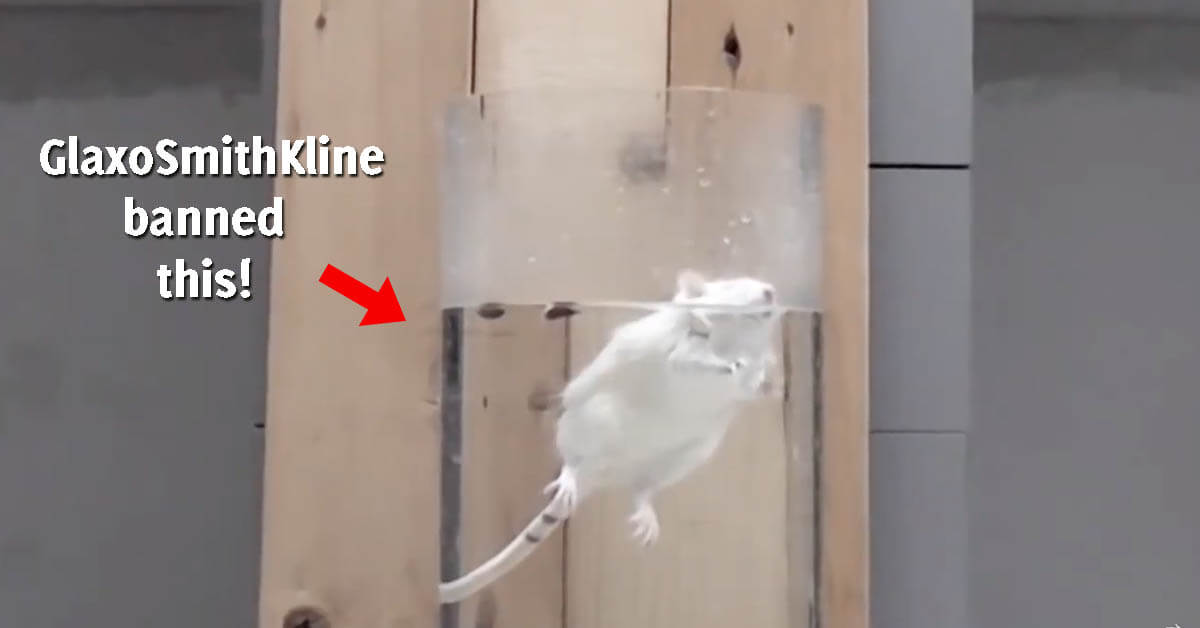
But after discussions with PETA scientists, GlaxoSmithKline—one of the 10 largest pharmaceutical companies in the world—banned the outdated animal model. Thirteen other companies, including other pharmaceutical companies, also banned the cruel test after discussions with PETA.
PETA Persuaded Coca-Cola Corn Syrup Supplier to Ban Crude Animal Tests
After hearing from PETA, Ingredion Incorporated—a multibillion-dollar global ingredients provider and “one of The Coca-Cola Company’s biggest suppliers of corn syrup”—implemented a new policy banning all experiments on animals for basic research and to establish health or nutritional claims for marketing ingredients, none of which is required by law.
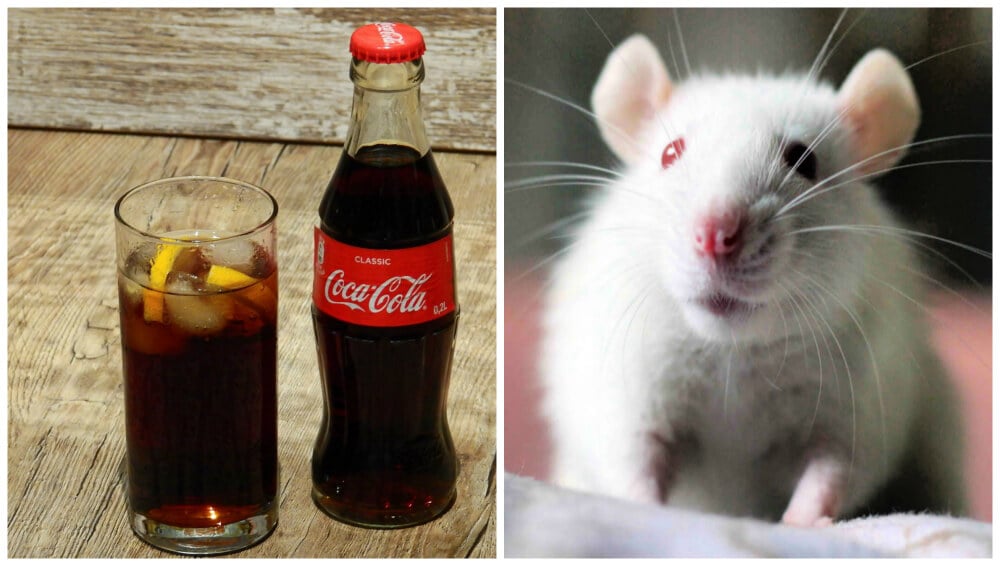
Ingredion previously funded numerous disturbing animal tests, including one in which rats were injected with a chemical that induces colorectal cancer and another in which rats were starved before the veins in their tails were cut open and they were repeatedly bled. At the end of every test, all the animals were killed and dissected.
Oregon Health & Science University Tried to Bury Hideous Experiments—Doesn’t It Know Not to Mess With PETA?
Like we do, PETA prevailed in a lawsuit against Oregon Health & Science University (OHSU), which thought it could get away with concealing videos of taxpayer-funded experiments in which infant monkeys were separated from their mothers and intentionally frightened. Experimenters also impregnated monkeys and fed mothers various diets of “junk food.”
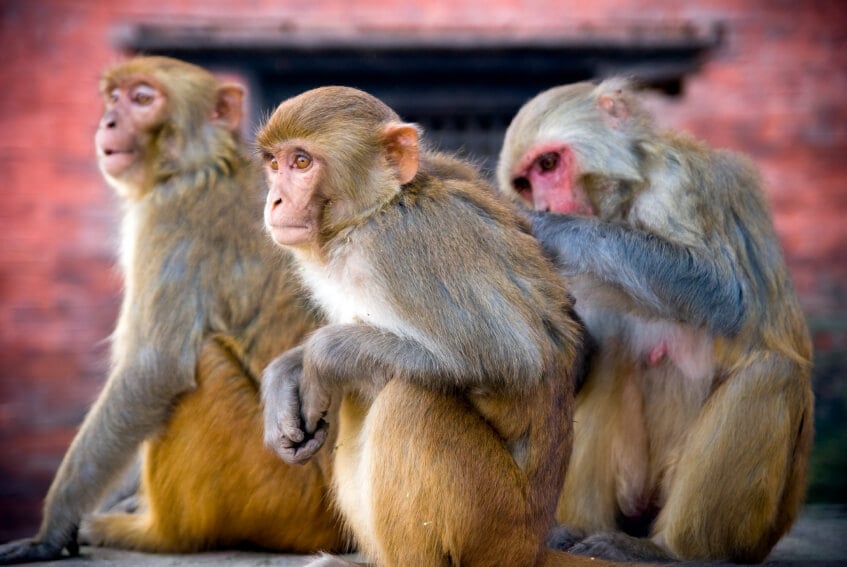
The university was ordered to turn over 74 videos of shocking experiments that occurred at the OHSU-operated Oregon National Primate Research Center.
The PETA International Science Consortium Ltd. Helped Fund a 3D Lung Model That Is Saving Rats and Mice
Funding from the Science Consortium helped contribute to the creation of a first-of-its-kind 3D model that can be used to study the effects of chemicals and other substances on the deepest part of the human lung.
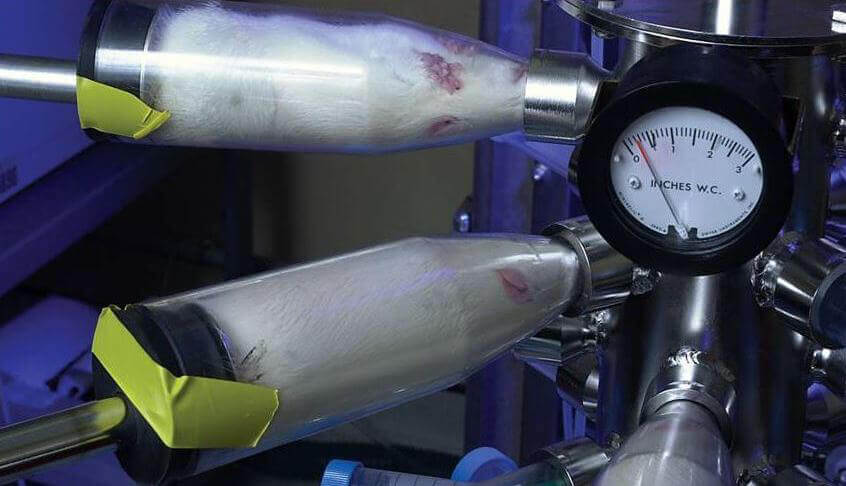
This model can prevent tens of thousands of rats and mice from being confined to small tubes and forced to inhale toxic chemicals for hours or months before being killed.
Texas A&M Stopped Violating Our First Amendment Rights
In a win for free speech, Texas A&M University (TAMU) agreed to remove all settings blocking or filtering comments critical of its muscular dystrophy experiments on dogs as part of a settlement of PETA’s First Amendment lawsuit.
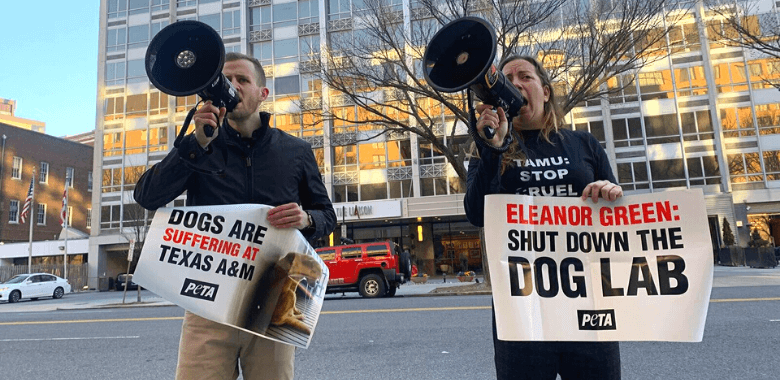
PETA’s federal lawsuit, filed in May 2018, challenged TAMU’s use of a filter on its official Facebook page. The filter automatically deleted visitor posts and comments if they contained words such as “PETA,” “cruelty,” and “lab” and other terms associated with our high-profile campaign against the school’s muscular dystrophy experiments on dogs.
Avon Products, Inc., Ended Tests on Animals for Its Products Worldwide and Earned PETA’s ‘Working for Regulatory Change’ Designation
In another win for animals everywhere, after working closely with PETA for nearly two years, Avon Products, Inc., stopped all tests on animals, including in China.
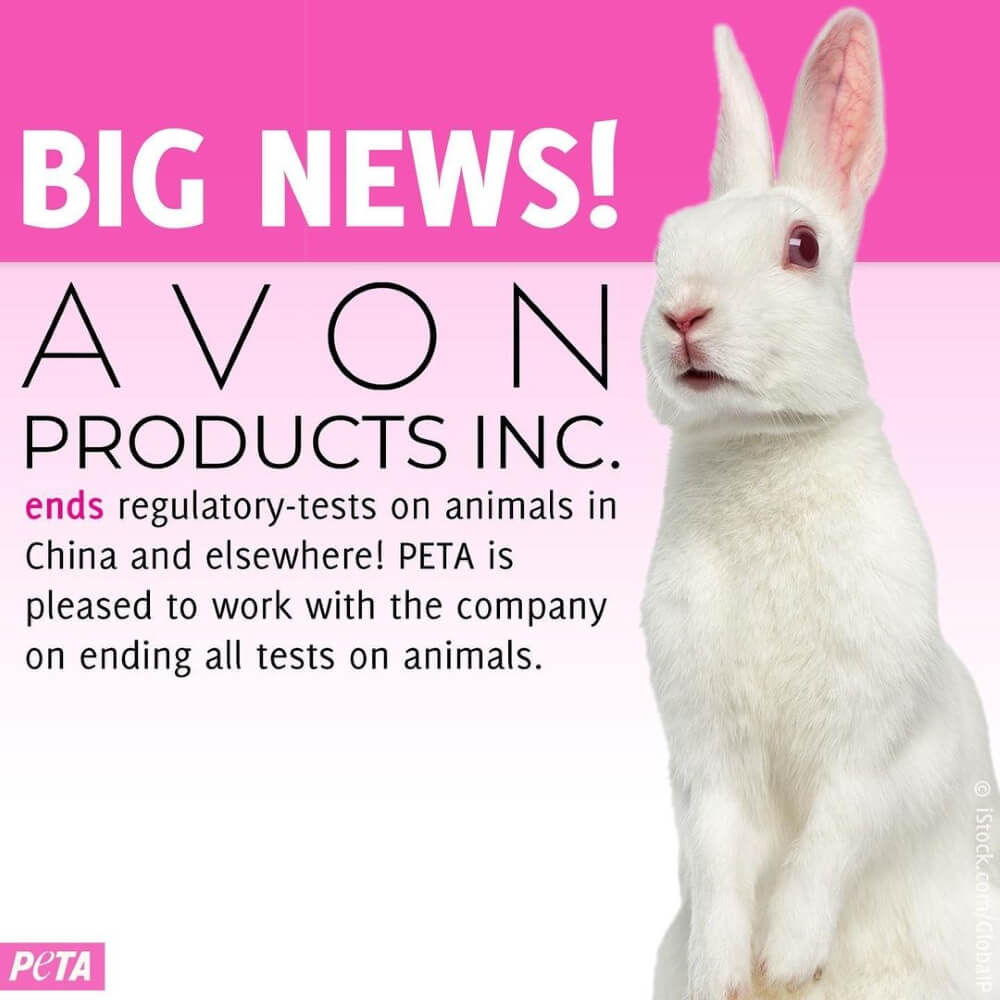
The company has officially been added to PETA’s “Working for Regulatory Change” list and is now working with its suppliers to make sure that no tests on animals are conducted for ingredients.
Sabra Hummus’s Parent Company Banned Animal Tests After Talks With PETA
If a vegan food pyramid existed, hummus would probably have its own category. But until this year, even our favorite savory spread had ties to poisoning, starving, and killing animals in laboratories.
In a big win following talks with PETA, Strauss Group—the second-largest food and beverage company in Israel and the parent company of the top-selling hummus brand in the U.S., Sabra—adopted a new public policy banning laboratory experiments on animals.
Bristol Myers Squibb Banned the Near-Drowning Test
After a PETA campaign that included hundreds of thousands of e-mails from supporters as well as shareholder resolutions, videos, ads, and public protests, Bristol Myers Squibb banned the forced swim test.
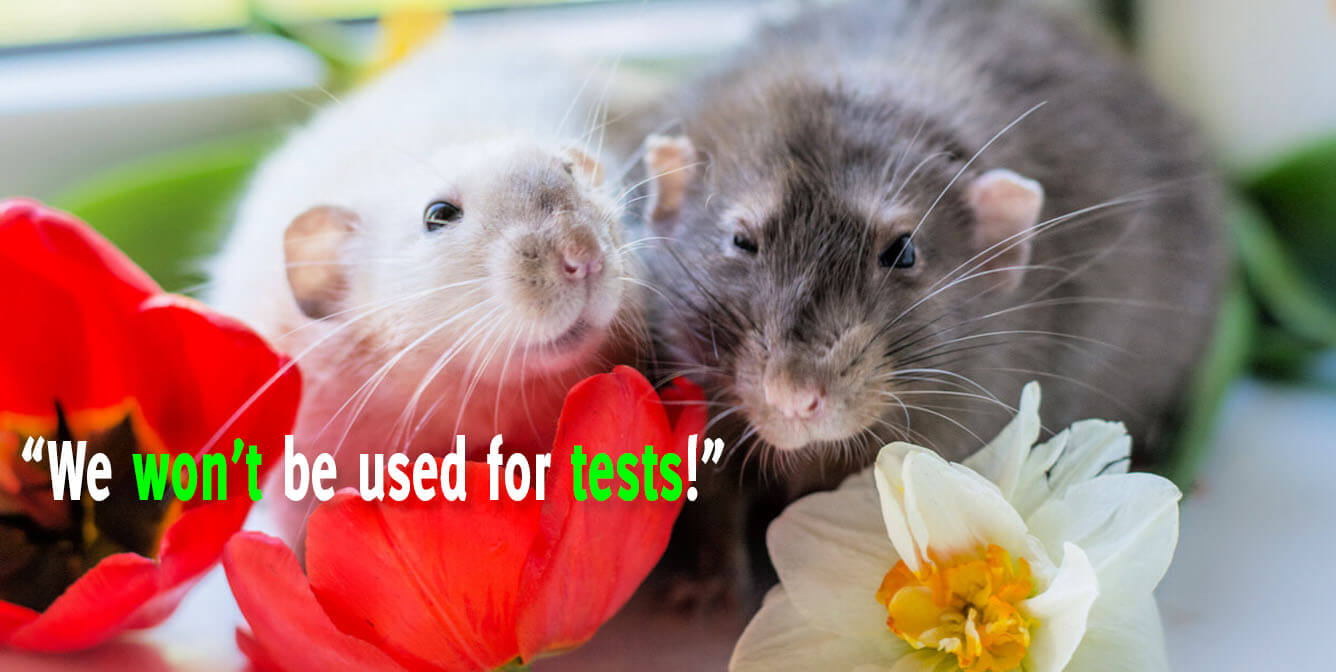
Between 2008 and 2017, the company published papers describing the use of more than 1,600 animals—748 gerbils, 698 mice, and 192 rats—in the cruel and pointless procedure. Many more animals were likely subjected to it in experiments that were never published.
Bayer Also Confirmed Its Policy Against Nearly Drowning Animals
Following talks with PETA, Bayer, the fifth-largest pharmaceutical company by revenue in the world, committed to a ban on the forced swim test.
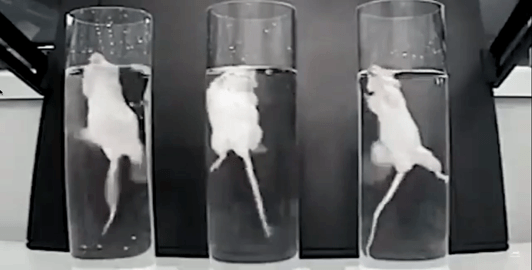
Bayer’s ban is another nail in the coffin of the cruel and worthless experiment.
PETA Scientists Collaborated With the EPA to Prevent Gentle Animals From Being Used in Toxicity Tests
PETA scientists worked with the U.S. Environmental Protection Agency (EPA) on research that led to a new policy preventing hundreds of birds each year from enduring tests in which they are fed pesticide-laced food for days before being killed.
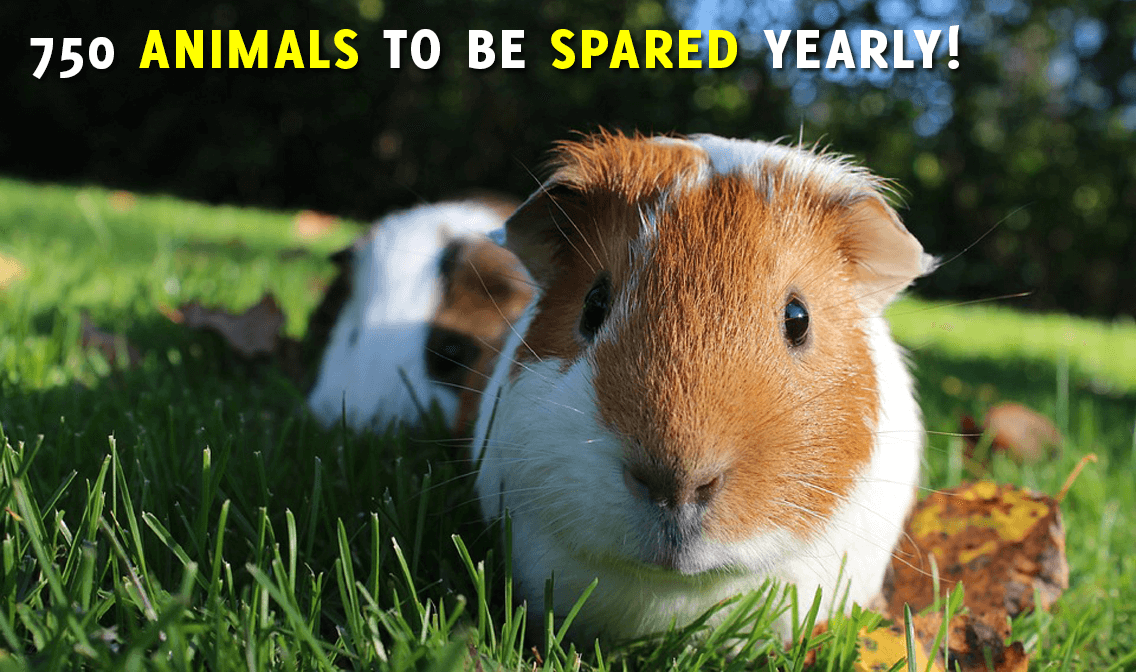
In another victory sparked by a meeting with scientists from PETA and the Physicians Committee for Responsible Medicine, the EPA conducted research that supported a new policy the agency says will spare approximately 750 rats, rabbits, or guinea pigs each year suffering in tests in which pesticides are applied to their shaved skin. The animals who do not die during these test are killed.
To cap off a year of saving animals and to recognize the EPA administrator and his team for their work to replace animal tests with superior, non-animal methods, PETA awarded a $5,000 grant in their honor to a completely animal-free research laboratory.
PETA Launched a ‘New Deal’ to Eliminate Useless Methods in Scientific Research (aka ‘Animal Testing’)!
The current system is broken. Ninety-five percent of all new drugs that test safe and effective in animal tests fail or cause harm in human clinical trials. So PETA set out to revamp laboratory research as we know it.
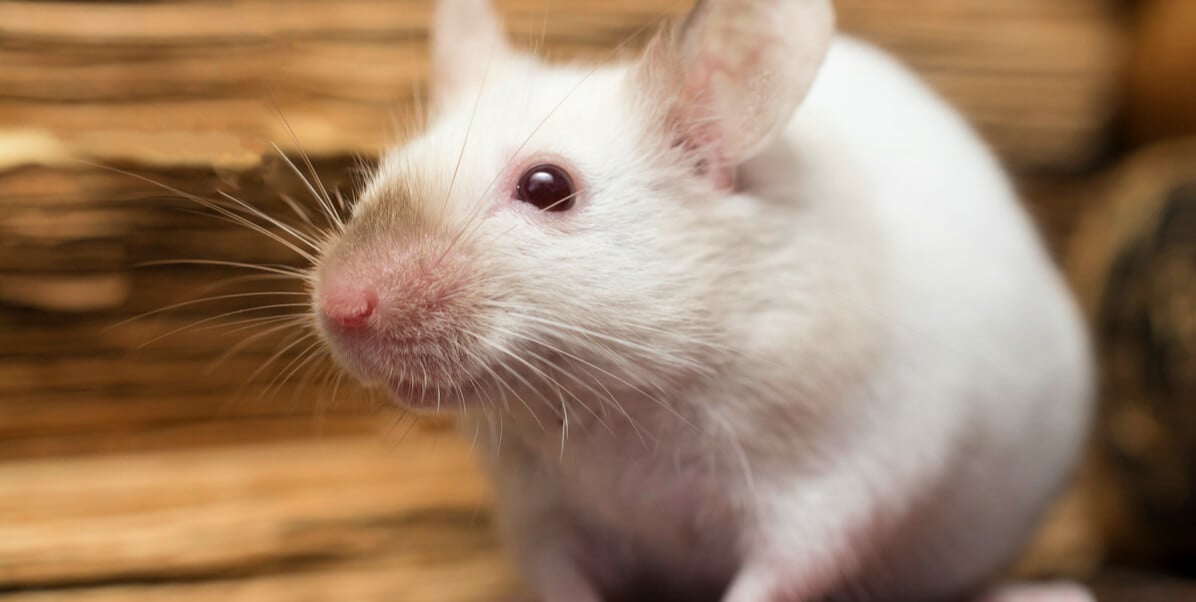
The Research Modernization Deal gives all government agencies a strategy for replacing the use of animals in experiments with non-animal, human-relevant methods. This is the inevitable future of science.


